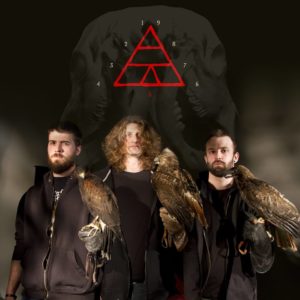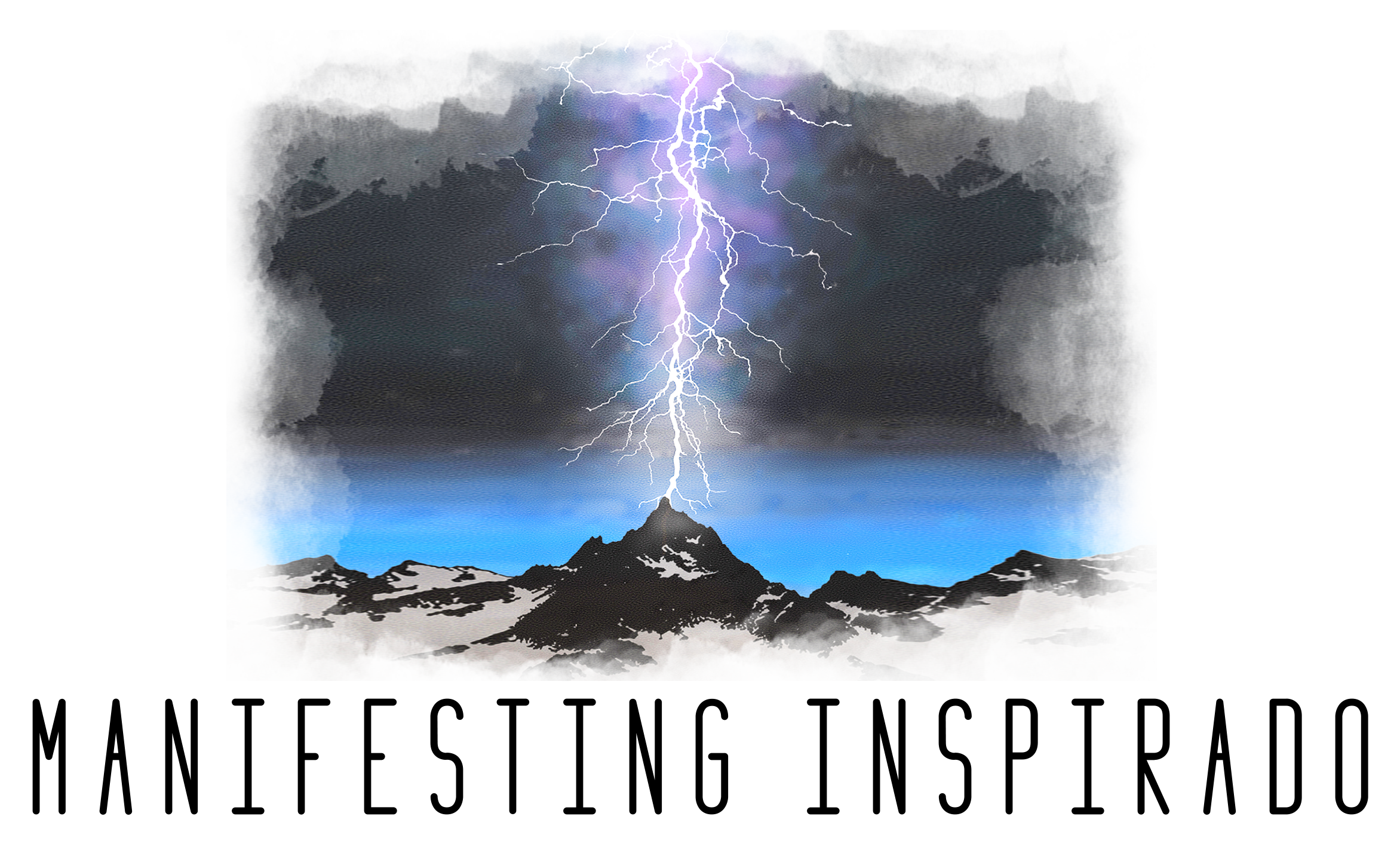Bryan “Racecar” Aiken: Creating from Authenticity
Having experienced the radical authenticity of Lazer/Wulf live and much late-night listening to the brain-grabbing complexity of their albums, I was intrigued to know more about their creative process. I had the good fortune to delve into this territory with Bryan “Racecar” Aiken, the creative force at the beating heart of Lazer/Wulf. Like all good genesis stories, he began with the inception …
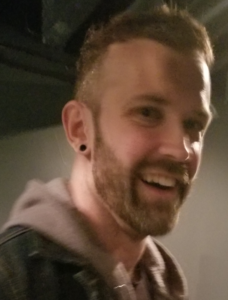
Bryan “Racecar” Aiken
Bryan: My first memory ever when I was 3 was going to a Def Leppard concert with the airport headphones on. We were in the front row and the band noticed that there was a 3 year old who knew the songs. Apparently they called the security over to get us to come back stage. I don’t remember any of this. The only thing I remember was the lights and the loudness of it. That’s my first-ever memory. It’s such a huge part of who I am. Your first memory forms you.
Metal will always be my language. That’s my blood that’s my identity, cause that is who I am, but it’s not necessarily my interests. I was raised on Black Sabbath, but that’s my parent’s music. Metal is my language as much English is my language, but that’s not necessarily where I’m coming from as an artist. That just happens to be my language. It’s the only one that I know how to speak. It’s not necessarily even a choice because it is in my blood. That was the first music I ever loved before I even started making memories.
Naia: In some ways your music has as much in common with electronic music like Aphex Twin as it does with Black Sabbath, maybe more.
Bryan:. That’s absolutely true. I’m so fascinated by electronic music, especially Aphex Twin — very formative for me, because it’s so far out of the realm of my language. It seems other worldly to me. I have never written anything electronic. The idea of making something electronic seems so impossible and the fact that other people can do that — that’s why I listen to it so much. Radiohead’s Kid A is my favorite record of all time, because it was made when laptops weren’t that great — on laptops! And they made what I consider to be a fairly emotionally charged masterpiece of honesty — that’s how I see that album. And it was done electronically! I don’t understand that. The tactile sensation of playing the guitar — the physical connection of playing an instrument — that to me is so intrinsic to how I emanate music. I don’t know how to communicate honesty without a tactile, percussive instrument.
Naia: Percussion, rhythm is your milieu.
Bryan: Absolutely. A lot of our songs don’t start with a riff, they start with a rhythm. I think that there’s that through-line with all of our songs. You can discern that the rhythm came first and that everything else was built around that time signature, built around that mathematical idea of what the drums are doing. And there’s a reason for that, because in a score that is focusing on the drums, that is the most congruent with what I am feeling at the time. Drums are not my instrument, but man! my brain is a drumset all the time.
Naia: Like on the song The Triple Trap (from The Beast of Left and Right), that intro is just badass.
Bryan: That’s me beating the shit out of a guitar. I mean that is a very percussive song. It is a very repetitive rhythm and I’m taking both hands and I’m just hitting it. That’s how I was feeling. That was how I was able to conjure the emotion of how I was feeling. I remember exactly where I was when I came up with that concept and what I was feeling and who made me feel that way (chuckles.) Me, taking both of my hands and playing the guitar traditionally was not doing it, so I threw my pick away and was hitting it – and that is where that style came from. I had that thing in my head — diddly-dunt, di-diddly-dunt. I had that in my head and I was trying to play that on guitar, thinking: how do I get what’s in my head to be a thing on this guitar? And it’s not happening, because it’s more of a percussive idea, so I stopped playing it like a guitar and just went for that. And that was more honest, so that’s where that came from.
Naia: And honesty is essential.
Bryan: Right, that is the only way I know how to make music — honestly. If it’s not honest, I feel like the audience will know that. I’m not even arguing that our music is quality, but I like to think we’ve built a reputation on making honest music. Our performance, I think there’s honesty in that. I’ve been told that. People thanking us after a show saying you bring so much honesty to your performance. If that is our reputation, than that’s just going to have to be my creative process.
As an artist, I struggle just existentially with why I exist, why any of us exist. It is really hard for me to justify my being a mouth to feed on this Earth if I’m not adding something to the conversation. That’s why I’m not interested necessarily in repeating things that have been done before — outside of the tradition of the Metal culture — cause I love that. I love tradition. I love culture. But if I’m not adding something to the conversation, I’m not sure why I’m doing it at all. And so I try to make sure that when I looking at a piece of music that I’m making sure that I am — doing exactly that — I’m adding to the conversation. I want anything that I produce to be something that only I could have produced, because it’s based on my specific experiences. Like it is the sum of the math that is me and no one else. And if I don’t do that then I don’t know how to justify how hard this life style is. It’s not easy. In the end, I need to know that, by the time all this is done or if I’m in a car accident tomorrow (knock on wood) that I did my best to add something to the conversation and to justify my participation in it.
Naia: It’s intriguing that you are doing it primarily through instrumental music.
Bryan: Yeah, my degree is in writing, so I decided to do a largely wordless medium (laughs.) I’m trying to communicate via only music. There are only 8 notes in all of music, you know, give or take a micro-tone. So you have such a limited language and I’m trying to boil down my experience as a human through 8 notes. That so fascinating to me — that limitation.
Naia: But then there are these punctuating focal points of lyrics, which you choose to put down in the mix in a very atmospheric way that some people could experience as just another layer to the music.
Bryan: That’s the intention. A lot of the time it’s because we are a 3 piece. We have a guitar and we have bass to handle the melody, so if I have an idea where I have 2 melodies, the only other option I have is to sing it. I don’t like singing necessarily. I think, to a certain extent, I do it because I need to do it. Like you said, there are these focal points on the record and that’s because it was something that I needed to say. It was not obligatory. We can get along being just instrumental and we are considered an instrumental band. I wouldn’t need to add an vocals to anything. If I ever do, it’s because I needed to. I like that autonomy that I have as a vocalist – that it’s never because I am a vocalist, so I guess I need to figure out what to sing here. It’s the other way around. Where I need to sing a thing, I need to figure out how I’m going to pull that off, because this HAS to happen, it has to happen.
I think if it’s a 50 minute record and there’s a total of 3 minutes of vocals on that, I think – and again this is just my philosophy — that those vocal moments are going to stand out more and be a little more impactful, because they surprise you. Well it’s probably because they mean a lot to the person who is singing them. I guess I don’t want, as a songwriter, to immerse the listener in too much to numb them to it. I’m also a personal trainer, so I talk a lot about the value of confusion. When you are exercising, routine is a problem — routine makes things less effective. If you keep your body confused or you keep your mind confused, that’s how you keep it active. That’s how I think you can make an active listen — is if it is a relatively confusing listen where the moment you let your mind wander something new happens to bring you back in. That’s my philosophy on making music.
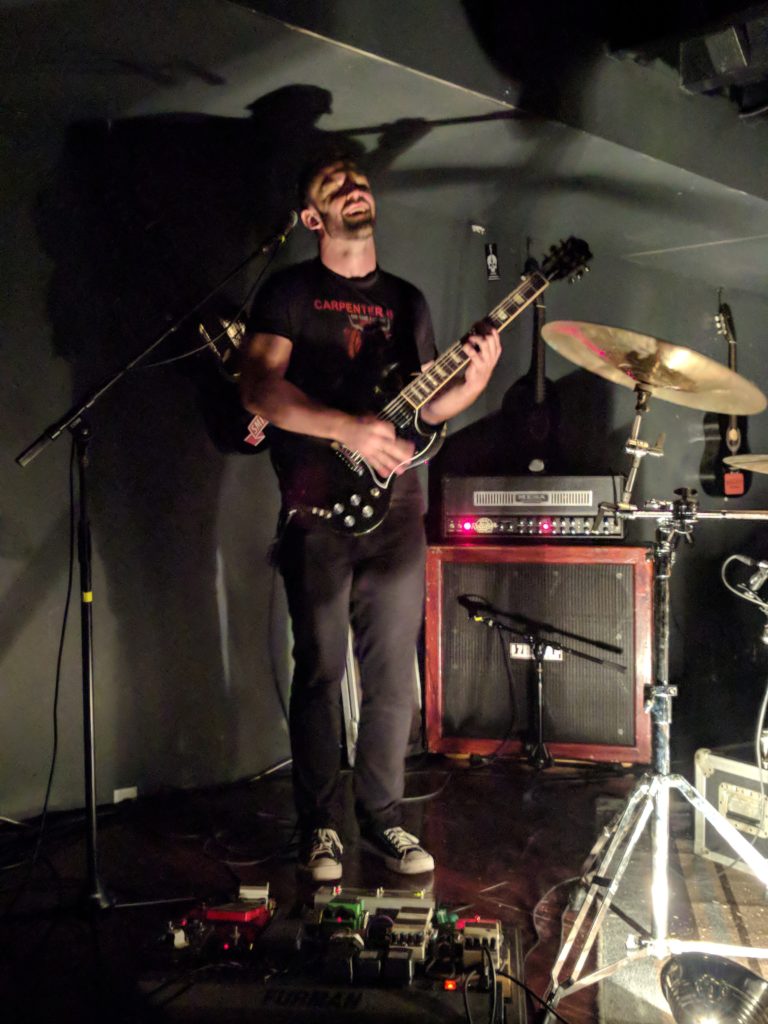
Bryan: in the moment
Naia: So what’s your writing process like?
Bryan: I mean I wish I had more insight into how the hell I’ve ever written a song. God! I haven’t spoken out loud about a lot of this stuff, cause I’ve never been asked these questions before. I hope that in your re-editing of this that I come off not like a pompous ass, because it is not at ALL how I approach my creative process (laughs.)
I don’t think I have ever written a single riff at the guitar. I always write it in my head in a moment when I am feeling something or when I’m overcome by some sort of emotion. Just because of where I live and the lifestyle that I live, I’m driving a lot! I spend a lot of that time not listening to music, just driving in silence, thinking. I’ve gone through things, especially in the last few years, that have been emotionally very trying. As I’ve reflected on those things, melodies come out of that, because that just is my language, that’s how I process emotion.
There will be times when I’m reading a book and I can’t stop thinking of about something that happened to me 2 months ago. I can’t even focus on the book I’m reading, because there’s a melody in my head that is keeping me from being totally focused on the movie I’m watching or the book I’m reading. So then I sing it into my phone and then I get myself to an instrument and try to find it. It’s that moment that I’m always — not waiting for, but that’s where the good ideas to me — the honest ideas — come from: when there is some song in my head that I can’t get out and so I have to exorcise myself of it. That’s why there’s only ever 4-5 songs on a record that we write. Every 3 years we’ll put out a record that only has 5 songs on it, because each one of those is incredibly laborious from an emotional standpoint — in terms of storytelling.
Right now I’m really high on the new Blade Runner movie. I’ve seen it 4 times in the theater (laughs) There’s a moment in that movie, where the main character looks like someone who is in a coma and needs to scream, but can’t. You can see that in his eyes and there’s a moment, in the film where he is at just a combustible level of emotion and can’t express it — and the score is doing something in relation to what his face is doing. And I’m looking at that and I’m thinking: That’s how I was at that funeral. You know, it just gives me chills. And I just run out of the theater and sing something into my phone, which is like — that was it! That’s the moment! That’s the feeling. How can I communicate that via music that someone watching this movie is getting? But people are listening to our record are not getting a visual element, so I’ve gotta take that visual cue of one human giving an emotion to another human — and boil that down to just a melody. That’s the challenge.
Naia: And yet there’s a very strong visual component to the Lazer/Wulf experience. You design the t-shirts, album covers and your own original tarot cards. How does the visual element fit into your creative process?
Bryan: For me if I’m writing instrumental songs I have very clear images of what each song looks like — like what color each song is. I know the color palette of each song as I’m writing it.
Naia: Is the color in response to the music or is the music in response to the color?
Bryan: Music is in response to the color. Everything is so visual to me, but visuals are not my language. I feel like I am not a visual artist. I’m an aural artist that obsesses over visual art – and so I require that. I require that as a consumer of art and so I feel like I need to communicate visually as well. Visuals are not my primary way of impacting the world, but it is how the world impacts me. And so I feel sort of obligated — which isn’t the right word — to have a visual element with our art, because I feel like art isn’t truly complete until it has a visual — a really honest — visual element to it, as a consumer. So I have to figure out how to draw. I have to figure out how to paint, because that is so important to the reception of art to me. So I do it not as a visual artist — I don’t consider myself a visual artist — and that’s not where I’m coming from when I’m making visual art. I’m doing it because it’s a such a key component of the making of art. So it’s not complete until there’s a picture associated, if that makes sense. To me the visual comes first. I know the character. I know the scene. I know the landscape of it and the color especially … and once that has really crystallized the song will write itself around that.
I’m super self conscious about talking about a lot of this stuff, coming off like I’m looking at my art as some big cosmic thing, but really that’s just my honesty. I am just reluctant to talk about my view on the power of music, because I’m not necessarily coming from a place of fun first. I’m trying …. I’m trying to make myself a happier person and that’s always my goal — to find my happiness to take my negative experiences, get out of those however I can, which is typically not through music, through therapy, through seeking art that inspires me in a positive way and then when I get out of that negative head space that’s when the writing process begins for me. Because I always write as a reflection of the experience.
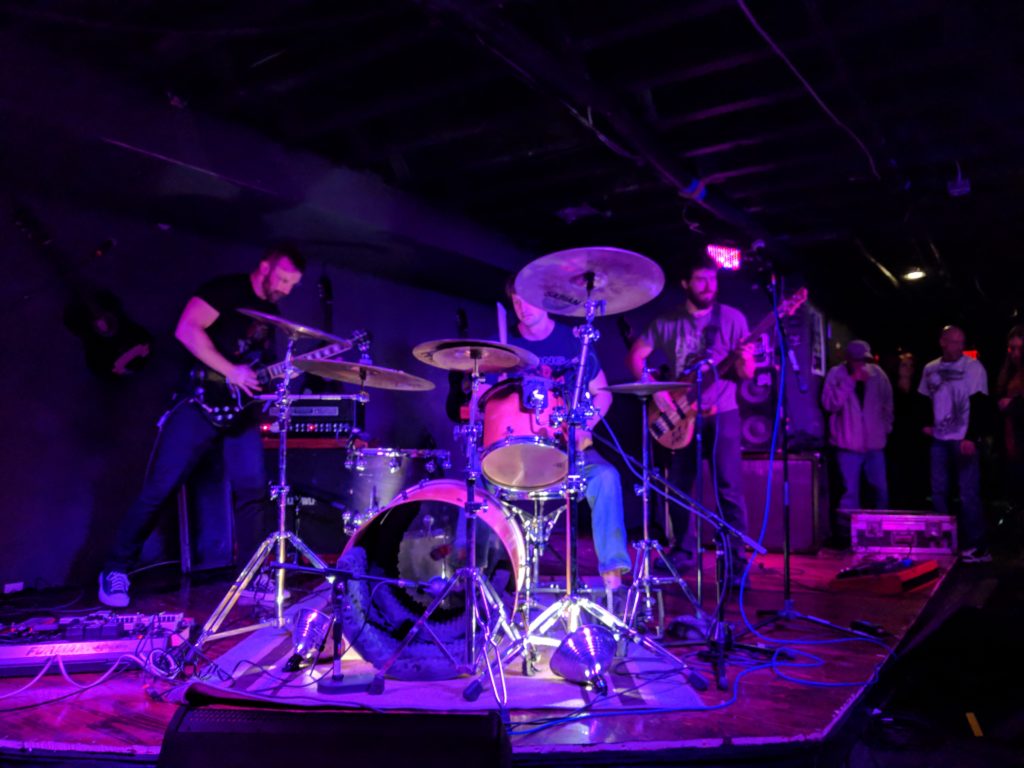
Lazer/Wulf live in Indianapolis 2017: Bryan “Racecar” Aiken (guitar), Brad Rice (drums), Sean Peiffer (bass)
Naia: This process is so emotional, so personal. What is it like to perform your songs live?
Bryan: So what I love about performing is how much joy there is in the room. I very rarely come to a place of writing songs from a place of joy. It’s obviously much more likely catharsis. But the fact that I can take whatever negative experience that I have that I need to write about and take that catharsis and then bring that to a room and the response of that room is joy?! it sort of justifies the negative experience that happened in the first place. that origin point of that negative energy, because that terrible thing that happened to me led to a lot of people having a lot of fun. You know, that’s kind of why I do this. It justifies even the bad things about life. It means that I have somewhere positive to put it. I think that’s really important to my creative method: that I never write about anything from a negative place. Even if I’m writing about something negative that happened to me, I’m going to write about it from an optimistic or even grateful place. Because I’m not here to spread negativity. I might be here to talk about negativity and to talk about mental health and to talk about suicidal thoughts and that sort of thing. All the things that are so negative and so common. I’m here to talk about those things, but I’m not here to give energy to those things.
Being a musician is not easy. Being an artist at all is not easy. There’s a lot of struggle. so you have to do what you love or else I don’t understand what the point could possibly be. Doing something only to be cool — that can’t sustain you on the road. The urge to be cool — that only gets you so far before you realize that your life is passing you by. So for me, for me I am doing what I love and what I love is taking my negative experiences and hopefully crystallizing it into something positive for someone else. That’s what I love. I love having conversations about valuing mental health and that sort of thing. So that’s what I’m trying to add to the conversation is the positive mental health side effects of being an artist and talking openly & candidly about emotion and not being afraid or ashamed of that. That’s what I love and when I die if I have done that for a majority of my life then I will die happy. So it’s just about following your bliss, man.
_______
Check out Bryan’s band Lazer/Wulf on their website, facebook, bandcamp
